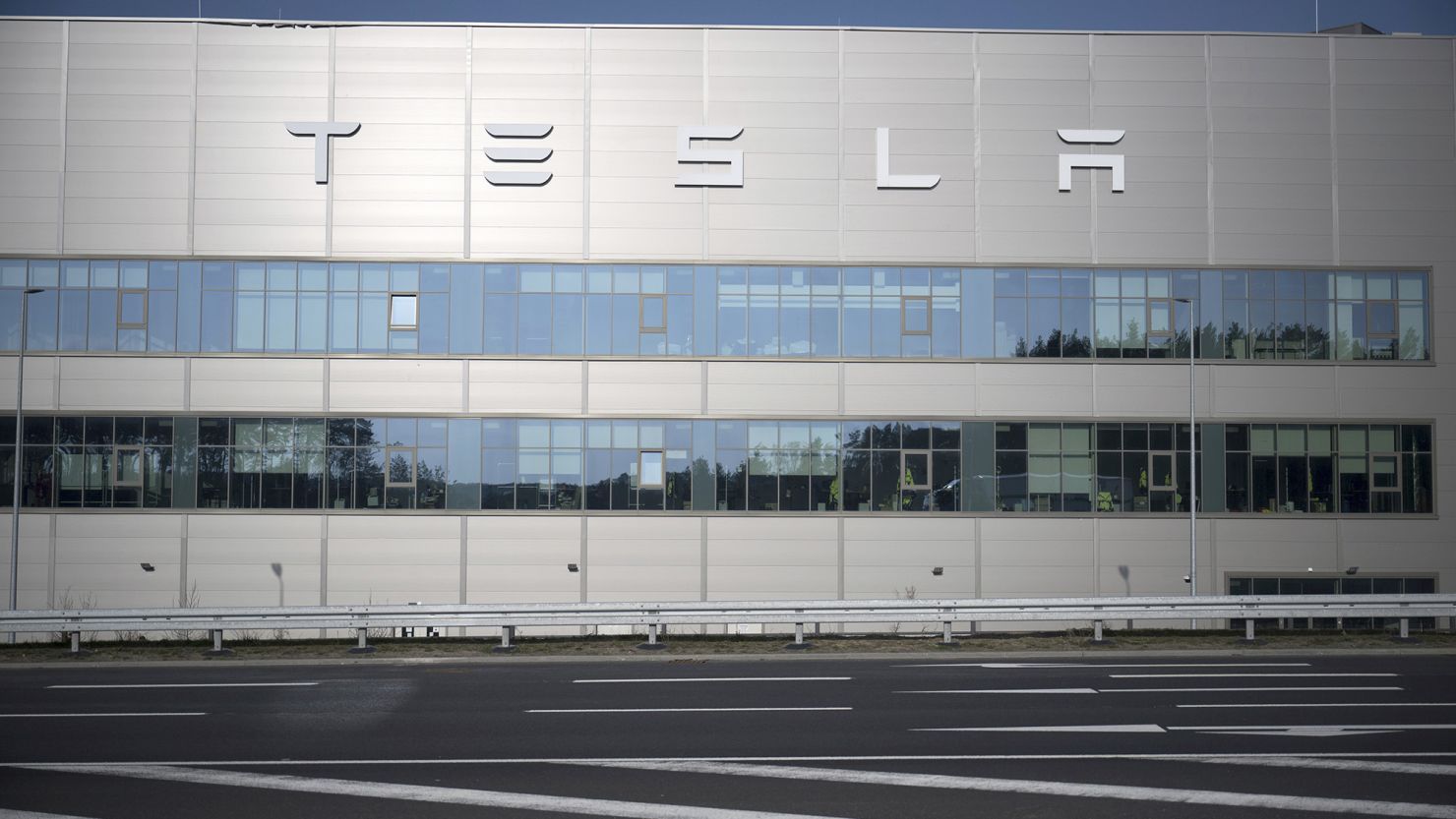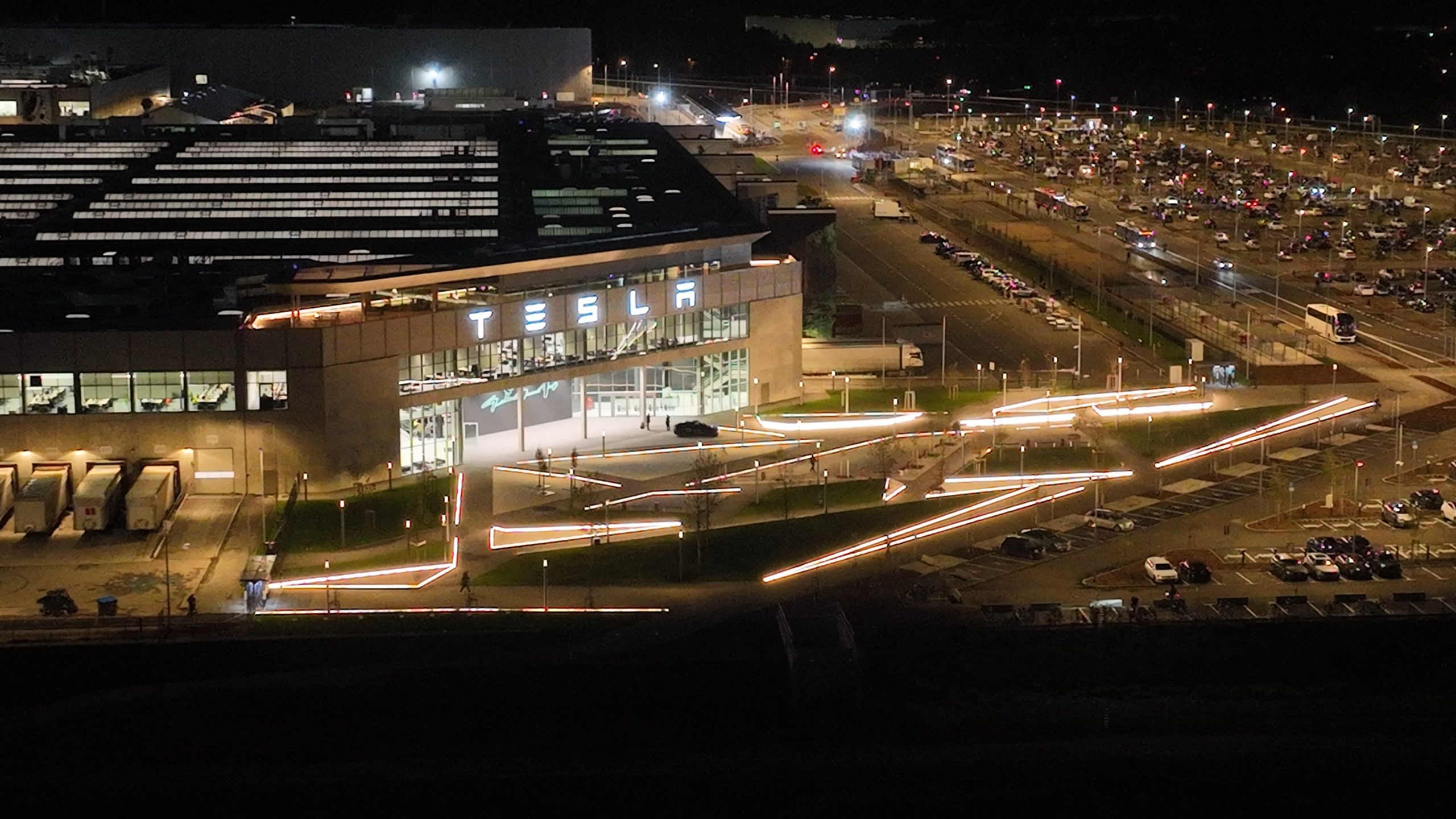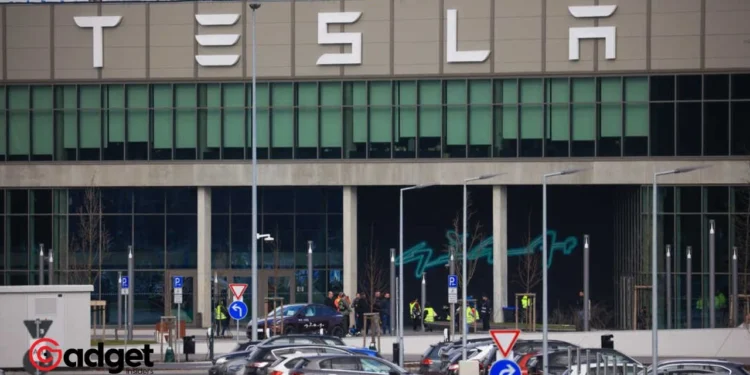Tesla’s ambitious expansion in Europe faced a significant setback this week when a suspected arson attack left its Gigafactory near Berlin, Germany, in darkness, causing a halt in production and expected losses in the hundreds of millions. The incident has sparked a flurry of reactions from the public, the media, and Tesla CEO Elon Musk himself, who condemned the attack as “extremely dumb.”
As we delve deeper into this event, it’s clear that the implications are vast, touching on environmental activism, the future of electric vehicles, and the safety of critical infrastructure.

A Shock to the System
The attack occurred southeast of Berlin, targeting an electricity pylon close to Tesla’s European Gigafactory, the U.S. electric vehicle maker’s first manufacturing plant on the continent. Despite the fire not spreading to the Tesla facility, it necessitated a shutdown of production until early next week.
This disruption is not only a logistical nightmare but also an economic blow, with Tesla estimating losses in the high hundreds of millions of euros. On the day of the incident alone, 1,000 vehicles were left unfinished.
The Fallout
The immediate consequences of the attack extend beyond Tesla’s factory gates. The local community suffered power outages, though emergency services were swift in extinguishing the blaze and restoring power to most areas.
The economic minister of Brandenburg, where the plant is located, described the attack as having “terrorist markings” and emphasized its impact on tens of thousands of people, including those in hospitals and elderly homes dependent on electricity.
The company’s shares also took a hit, dropping by 3% in the aftermath of the incident. The company, which employs around 12,500 people at the site, had to evacuate and send most employees home, further underscoring the attack’s extensive ripple effect.
Welcome back to asia Dan Ives and he continues his bullish call on Tesla, despite the recent problems they're having in China, possible arson in Berlin and slowing EV demand. Buy rating, PT $315.@Tanvirgill2 @willkoulouris @DivesTech $TSLA #China pic.twitter.com/OxRxX4VIL9
— CNBC's Street Signs (@StreetSignsCNBC) March 6, 2024
A Wave of Condemnation and Concern
The incident has drawn widespread condemnation from various quarters. Elon Musk took to X (formerly Twitter) to criticize the attackers, suggesting that targeting an electric vehicle production plant contradicts environmental goals.
Meanwhile, German Interior Minister Nancy Faeser highlighted the potential left-wing extremist motive behind the attack, noting its severe implications for critical energy infrastructure and the public. Local media published a letter purportedly from the Volcano Group, a far-left activist organization, claiming responsibility for the incident.
The letter criticized Tesla and Musk for their environmental and labor practices, framing the attack as a statement against the company’s impact on the environment and society. Police are investigating the letter’s authenticity and the incident’s broader context, including past environmental protests against the Gigafactory.

Tesla’s Bumpy Road in Europe
This arson attack is not the first challenge Tesla has faced in Europe. The company has contended with union pressures, supply disruptions, and environmental protests since establishing its presence on the continent.
Despite these hurdles, the electric vehicle manufacturing giant’s ambitions remain high, aiming to double the Gigafactory’s capacity to meet the growing demand for electric vehicles in Europe.
Looking Ahead
The attack on Tesla’s German Gigafactory is a stark reminder of the complex interplay between environmental activism, corporate expansion, and the critical importance of infrastructure security. As Tesla and German authorities navigate the aftermath and reassess security measures, the incident serves as a cautionary tale for other companies operating in sensitive sectors.
The road to a greener future is fraught with challenges, but it also offers opportunities for dialogue, improvement, and collaboration between corporations, activists, and governments to ensure that progress does not come at the expense of safety and sustainability.










